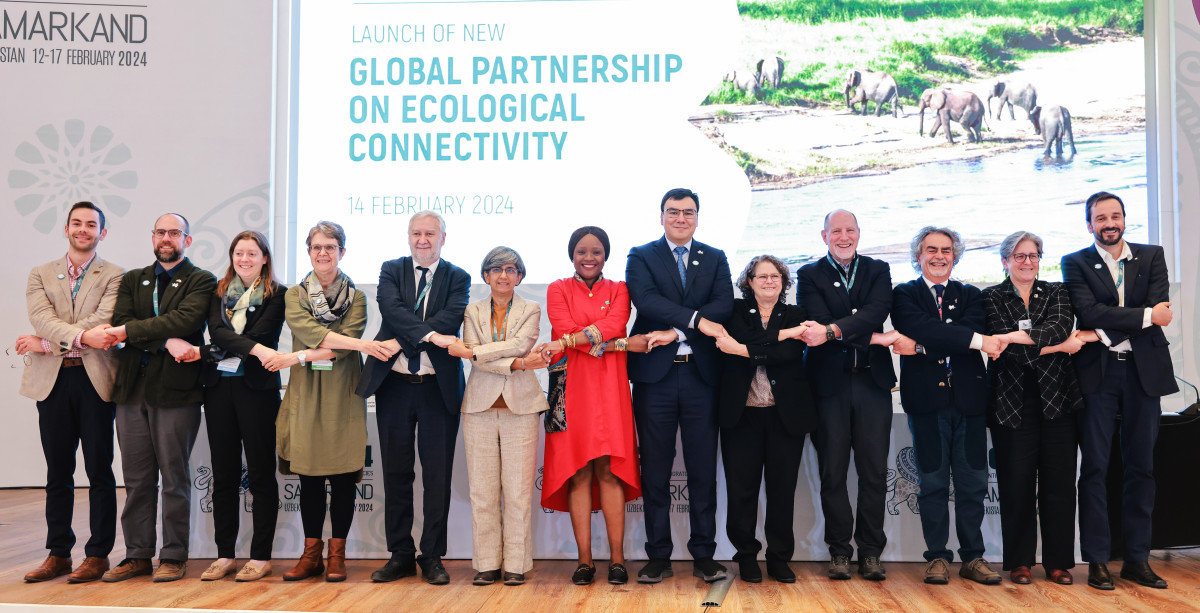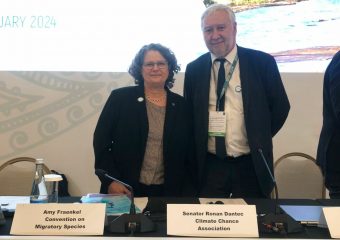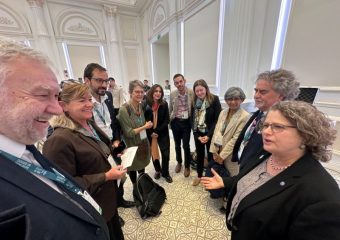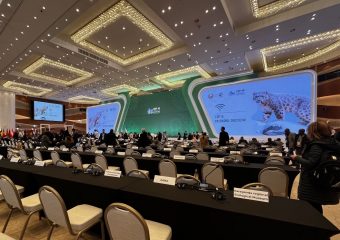This website uses cookies so that we can provide you with the best user experience possible. Cookie information is stored in your browser and performs functions such as recognising you when you return to our website and helping our team to understand which sections of the website you find most interesting and useful.
Major new global initiative to protect and connect natural areas launched at UN wildlife meeting.

Launched at the fourteenth meeting of the Conference of the Parties (COP14) to the Convention on the Conservation of Migratory Species of Wild Animals in Samarkand, Uzbekistan (February 12-17, 2024), the Global Partnership on Ecological Connectivity aims to protect, connect and enhance critical habitats for migratory species, marking a turning point in international conservation efforts.
It is a major new initiative to ensure that important areas for migratory species are identified, protected and connected. The partnership is joined by several organizations, including the Center for Large Landscape Conservation (CLLC), the Convention on Biological Diversity (CBD), the World Wide Fund for Nature (WWF), the Convention on Wetlands (Ramsar) and the International Union for Conservation of Nature (IUCN), “Local Governments for Sustainability” (ICLEI), the United Nations Convention to Combat Desertification (UNCCD), the United Nations Environment Programme World Conservation Monitoring Centre (UNEP-WCMC), and Climate Chance.
The International Coalition on Biodiversity Corridors in Africa, through its secretariat provided by Climate Chance, formalized its membership of the Global Partnership for Ecological Connectivity at COP14 of the Convention on Migratory Species (CMS).
At the official invitation of the Convention on Migratory Species (CMS), the International Coalition Biodiversity Corridors in Africa was registered as a founding member of the Global Partnership for Ecological Connectivity, along with a large number of global biodiversity conservation organizations. This makes it the main initiative for bringing together African players on this theme, and a representative interlocutor for international bodies.
Defined by the CEM as “the unimpeded movement of species and the flow of natural processes that support life on Earth”, ecological connectivity is increasingly recognized as a key conservation priority worldwide. “Nature knows no borders: transboundary cooperation – a key factor in the conservation, restoration and sustainable use of biodiversity”. According to the Kunming-Montreal Global Biodiversity Framework and the United Nations General Assembly resolution (A/75/L.73), all states are called upon to strengthen international and transboundary cooperation in order to maintain and improve ecological connectivity in transboundary habitats, transboundary protected areas and ecosystems that are vulnerable or form part of the migratory range of specific species, as indicated in Target A of the Global Biodiversity Framework (and its Target A for 2050 and Targets 2, 3 and 12 for 2030). Belgium, France, Monaco and Uzbekistan are among the CEM Parties taking part in this new initiative.
This major initiative under the aegis of the United Nations, supported by the Convention on Migratory Species, will focus on four key areas of work:
• Scientific data and monitoring: prioritizing the integration and analysis of scientific data to inform conservation measures, while filling important gaps in habitat identification and threat assessment.
• Policy and legislation: Support evidence-based decision-making to improve policies and legislation that promote ecological connectivity by integrating it into global goals and national priorities.
• Adoption and implementation: Encourage the application of connectivity conservation strategies through tangible projects and initiatives, aiming to establish well-connected protected areas and other effective conservation measures at site level.
• Awareness-raising and dissemination: Increase public understanding and support for ecological connectivity through communication campaigns and materials, and collaborative events.
• Funding will also be sought to support the implementation of priority actions.
“We can’t preserve Africa’s great wildlife without improving connectivity, and we can’t preserve corridors without acting resolutely in favor of local community development.” Senator Ronan Dantec, President of the Climate Chance association
To see the original press release, click here.




